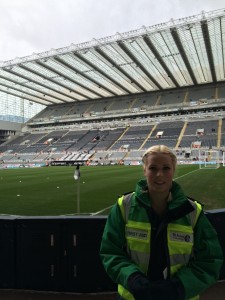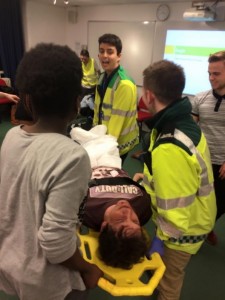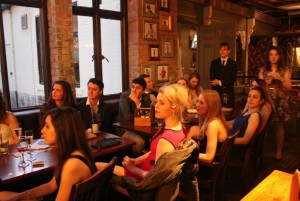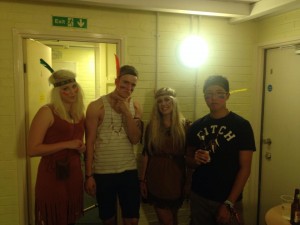I vividly remember receiving my offer of my first choice of university halls for first year, even more than receiving my offer onto dentistry, (I was just checking my emails at a checkout line in Tesco), and it was the point where excitement really kicked in for uni, as I knew exactly where I’d be spending the majority of my first year, which is a big thing!
Here at Newcastle, if you put the uni as your firm choice after you’ve received your offers, you will be guaranteed a place in university accommodation. But what does that really mean?
You will be given a room, in either halls of residence owned by the uni, or in one of the partnership halls that the uni has agreements with, such as ‘The view’ or ‘Victoria halls’. To be honest, they are run exactly the same as uni accommodations and the contracts are done through the university, so it makes no difference really.
You’ll be given a date of when the accommodation ranking scheme is released, and it’s up to you to do your research (visit open days, go on the Newcastle uni website, ask friends at Newcastle) and rank the accommodations in order of preference.
Firstly, chose whether you want catered or self-catered. Obviously this depends on your culinary skills and, let’s face it laziness, but there are other things you have to consider. For example, ‘Castle Leazes’, Newcastle’s self-catered halls, are massive, you’re guaranteed to make hundreds of friends there, you’ll get a full English every week day, and a three course meal in the evening (you will put on weight, beware!). Sounds fab, and it is, but it wasn’t for me. Mainly because of the layout, it’s essentially long corridors, of 20 or so rooms, and large communal bathrooms, with large bars and the food court downstairs for chilling, or people’s rooms.
Whereas self-catered halls, are arranged more as individual flats in large blocks. There were 6 in my flat, 3 boys and 3 girls, in ‘Marris House’. We shared a kitchen/living room, 2 showers and 2 toilets. If that sounds too quiet, it wasn’t, you’re surrounded by more flats (another 180 people), which meant there was still plenty going on, if you wanted it, but it was really good because you could get the downtime when you wanted too.
The second, and most important thing, is location, location, location!
Get a map out, find out where your course is, and look at the accommodation near there. For me it was a no brainer, it was either ‘Marris House’, or ‘Richardson road’, both next to the dental school, a 10 minute walk to the town centre, and they’re right next to the gym (which I barely used anyway). If you do want somewhere closer to town, ‘Windsor terrace’ or ‘Park Terrace’, are a 5 minute walk to the dental building, and only a 5 minute walk to town, or even somewhere like Liberty Plaza, which is in the centre of town!
Some halls are a little more out in the sticks, like ‘St. Mary’s’. A few people on my course where in these halls and loved it, they never missed an event or night out because of where they lived they aren’t too far out, just remember to factor a bus pass into the cost.
Thirdly, price! Weigh up what you need, you want, and can live without. So my choice, from location, was either ‘Richardson Road’ or ‘Marris House’, it was now price that separated them. When I applied, ‘Marris House’ was £10 a week more, but I believed the extra money was totally worth it, for a newer, brighter, more modern flat, rooms with sinks, larger communal area, more cupboards and fridge/freezer space, a nicer layout, 2 toilets instead of 1, and a TV with the license paid for. However, I had friends, who chose Richardson road because they wanted that extra £10 for food or drink and were happy with that compromise.
Similarly, with an en-suite, if you feel you need one, these rooms tend to be roughly £20+ more expensive than a flat with a toilet and shower shared between 3.
Definitely take ranking halls seriously. I’ll always recommend ‘Marris House’, I went there so I am bias, but it was my first choice too. I had an amazing year, staying up late watching films and weird TV, going to flat parties and nights out, but mostly, I made friends for life that I have since lived with in 2nd and 3rd year (more on that side of accommodation in another blog).
Unfortunately, ‘Richardson Road’, which is next to ‘Marris House’ is due for demolition in June 2016 to make way for new uni accommodation. However, the university has set up a contract with the building company so that it will be, what they are calling ‘quiet construction’, and they have said that it will cause no disruption to occupants of ‘Marris House’ during this period, both in terms of access and noise. Especially around exam times as the sports hall, also next door, is where a lot of exams take place. The only difference I think you’d see would be less people walking around.
Will, Dentistry Student







